If you want to get started in crypto derivatives, we need an exchange that supports crypto derivatives trading. The question is, which one suits your personal needs the most?
A derivative is a financial contract between two or more parties based on an underlying asset's future price. It is worth noting that derivative is one of the most ancient types of financial contract on the market. People always use derivatives to simplify deals among merchants who traveled all over Europe and participated in periodical fairs, an early kind of market in the Middle Ages. In modern days, derivatives have grown in popularity to become one of the most widely used financial instruments.

The Implementation of Derivatives
Currencies (and cryptocurrencies), commodities, bonds, stocks, indexes, and interest rates are commonly utilized as underlying assets in derivatives. For example, before the previous crisis, Berkshire Hathaway, a prominent American holding corporation, began selling put options on four equity indices, including the S&P 500 and the FTSE 100. A put option allows the right to sell an underlying asset at a defined price by a specific date. Berkshire Hathaway offered investors the opportunity to acquire an option premium and, as a result, the power to sell their stocks at a pre-determined price and date.
Another special implementation of derivatives is in the aviation industry. Because airlines rely primarily on jet fuel, which frequently fluctuates, implementing effective derivative hedging measures is exceptionally beneficial. Southwest Airlines, the world's largest low-cost carrier operating in the United States, is a well-known example of success in this sector. Because of its well-designed hedging policy, the airline has been able to lock in low crude oil prices for years, paying between 25 percent and 40 percent less for jet fuel than its competitors.
Types of Derivatives
Derivatives come in several forms, and the most common are Futures, Forwards, Options, and Swaps.
Futures and Forwards are contract types that are pretty similar with just minor variations. Futures bind the buyer (or buyers) to buy the item at a previously agreed-upon price on a future date, while Forwards, on the other hand, are more adaptable and customized to the needs of both traders. It is because forwards are typically traded on over-the-counter (OTC) platforms.
Options let traders buy or sell an underlying asset at a pre-determined price. However, the traders are not required to buy the asset under the contract terms, which is a crucial distinction between options and futures.
Swaps are financial derivatives that allow two parties to exchange one sort of cash flow for another. Swaps involving interest rates, commodities, and currencies are the most common. Swaps often indicate the replacement of a fixed cash flow with a floating cash flow.
The Use of Cryptocurrency Derivatives
To mitigate the risk of investing in the actual coins, cryptocurrency traders utilize derivatives. Traders typically employ derivatives to hedge their portfolios from price changes because it allows them to speculate future prices in a dynamic market. A crypto trader, for example, would hedge with perpetual swaps, which involve betting in the opposite direction to reduce the chance of a significant loss, especially in the event of a market crash.
Another prominent application of derivatives in crypto trading is to speculate on asset prices without buying the underlying asset. For example, instead of purchasing Bitcoin or altcoins, traders can purchase a futures contract. That means they only need to pay a small amount of money to acquire market exposure. They can alter their position if the price of the underlying asset swings.
Best Cryptocurrency Derivatives Exchanges
To choose an ideal crypto derivative exchange, you must consider several aspects. From safety measures, trading features, to the most important points like liquidity and fees. Choose an exchange that is safe and covers your needs. Even though some exchange offers high leverage of more than 100 times from your initial funds, it is not wise to use leverage higher than 10:1 in cryptocurrency trading.
1. Binance Futures
Binance Futures is a cryptocurrency trading platform founded in 2019 as a part of Binance. It was established for traders who like to speculate on Bitcoin and other popular altcoins like Bitcoin Cash, Ethereum, Litecoin, and Ripple values. Binance Futures benefits from Binance's reputation because it is a product of Binance, one of the most well-known and trustworthy cryptocurrency trading platforms in the world. It is the world's largest cryptocurrency exchange by trading volume daily and is available in over 180 countries with a global user base of over 15 million people.
With the maximum cost of 0.04 percent on any deal, leverage up to 125x is also possible on Binance Future's platform. The traders' funds in Binance Futures accounts are kept separate from their regular trading accounts. In this case, tether (USDT) must be used as collateral to fund Bitcoin futures. The USDT-margin futures contract's limit order feature allows clients to specify a Take Profit (TP) and a Stop Loss (SL) to the order.
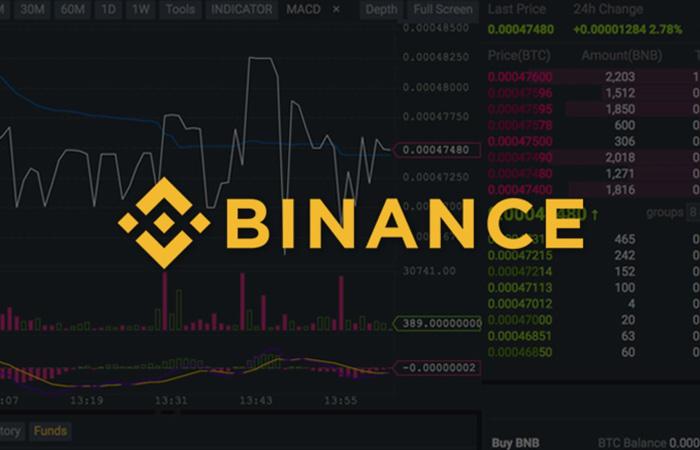
Except for a few new tools, such as those used to regulate leverage and examine open positions, the Binance Futures user experience is nearly identical to the Binance spot trading interface. Binance Futures also has what is called SAFU insurance to covers their clients' Futures wallets and funds.
The exchange does not require KYC as long as your withdrawals are under 2 BTC every 24 hours. If you wish to withdraw more, stretch your window time to reach over the limited period. But more importantly, completing a KYC can boost your withdrawal limit to 100 BTC and add the option of currency deposits. You can submit various evidence documents, such as a utility bill, bank account statements, or credit card issuer statements.
2. Bybit
Holding headquarters in Singapore and branches in Taiwan and Hong Kong, ByBit is one of the fastest-growing crypto derivatives platforms. Bybit appears as a clear frontrunner since they dedicated great attention to the trader community and have been steadily increasing since last year.
Many people may find it amusing that a young exchange like Bybit could attract traders' attention in a short period of time. One of the reasons for Bybit's popularity is its low fees. CEO Ben Zhou and his group have done an excellent job keeping the costs among the lowest in the cryptocurrency derivatives business. Bybit charges a taker fee of 0.075 percent and a refund of 0.025 percent to makers.
Bybit is currently one of the top three crypto derivatives exchanges, with over 100,000 users and multilingual support (English, Chinese, Traditional Chinese, Korean, and Japanese). Unlike other margin trading exchanges, Bybit has a simple design, but it has all the features that can allow traders to have a more advanced trading experience. Since its matching engine can handle 100,000 TPS, you did not have to worry about overload, and it has low latency (1ms).
Bybit offers two kinds of contracts: USDT perpetual contracts, and perpetual inverse contracts. The margin used on the USDT perpetual contract is USDT, and it is a linear contract. Trading in BTCUSDT is recommended for beginners.
In general, BTC, ETH, EOS, XRP, and USDT are among the five high-volume cryptocurrencies supported by ByBit for trading. An inverse contract indicates that if a trader wants to trade BTC/ETH/XRP/EOS, they must use the underlying cryptocurrency as the margin to trade the contract.
Additionally, Bybit's Fiat gateway allows clients to buy cryptos directly. Moonpay, a 3rd party that provides crypto payment infrastructure, is used to offer this function. But you must complete KYC with Moonpay to access the service.
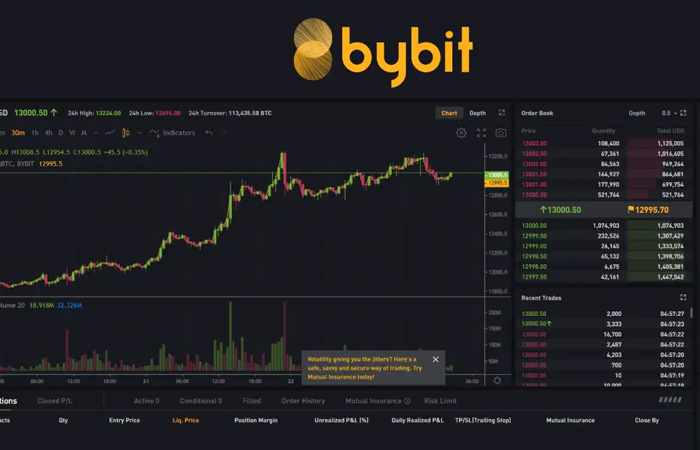
ByBit has a leverage of up to 100X. So if you open a position at $10 and leverage it 50 times, it will be possible for you to trade a contract worth $500. In this circumstance, 10 USD will be referred to as "initial margin".
ByBit provides trading in various ways. For instance, you can trade manually, with a grid bot, or with a service like Stackedinvest. However, one account may be insufficient to test many techniques, necessitating the use of the sub-accounts. As the profit and loss calculation held separately, clients can use different tactics and better track the performance of their trades.
3. BitMEX
BitMEX is a cryptocurrency exchange that mixes margin trading and crypto asset derivatives for traders. HDR Global Trading Limited is the sole owner of BitMEX. The company was established under the Republic of Seychelles' International Business Companies Act of 1994 based in Hong Kong.
BitMEX only accepts deposits of BTC coins. In this derivative exchange, you can buy/sell cryptocurrency contracts of the following currencies: BTC (Bitcoin), Cardano (ADA), Bitcoin Cash (BCH), Ethereum (ETH), Litecoin (LTC), EOS, and Ripple (XRP).
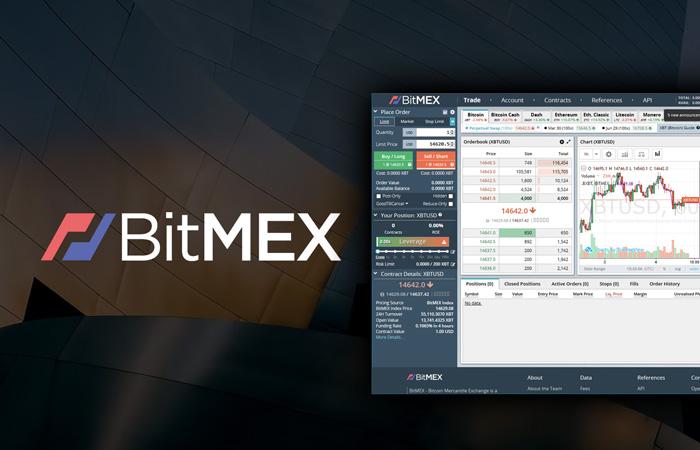
BitMEX offers various contracts, such as Traditional Contracts or Futures, Perpetual Contracts, Upside Profit Contracts, and Downside Profit Contracts. However, Perpetual Contracts, Upside Profit Contracts, and Downside Profit Contracts are only available in BTC. To make it clearer, here are the basic differences between the 4 contracts in BitMEX:
- A traditional futures contract is a type of contract in which a buyer and seller agree to buy or sell a commodity, currency, or other items at a fixed price at a future date. It is accessible for BTC and other altcoins that are supported.
- A perpetual contract is a derivative product comparable to a typical futures contract. However, unlike regular futures, it has no expiration or settlement date. Perpetual contracts trade close to the underlying reference Index Price.
- Upside profit contracts allow buyers of the contract to participate in the potential upside of the underlying instrument.
- Downside profit contracts allow contract buyers to partake in the underlying instrument's potential downside.
BitMEX offers a variety of leverages for various cryptocurrencies and contract types. For example, a traditional futures contract has 100x leverage for BTC, BCH, ADA, and EOS, 20x leverage for XRP, 50x leverage for ETH, and 33.33x leverage for LTC.
Except for the United States, BitMEX is open to all clients and traders from across the world. However, some US consumers have found a way to access BitMEX through VPN setups, which BitMEX strictly prohibits. The corporation has taken precautions to limit the access, but they are insufficient to prevent impersonators from entering.
All in all, BitMEX is a well-regarded exchange for margin trading cryptocurrencies, and it is also one of the safest. Furthermore, there have been no substantial discussions regarding BitMEX hacks or breach attempts in public forums.
4. FTX Exchange
FTX is a Bitcoin exchange that has quickly made a name for itself in the ever-growing cryptocurrency market. The exchange has received much positive feedback from the crypto trading participants, and it already has a lot of daily trading traffic. Due to the platform's relatively young age and the fact that FTX's main offering is not open to anybody in the United States, this is significant.
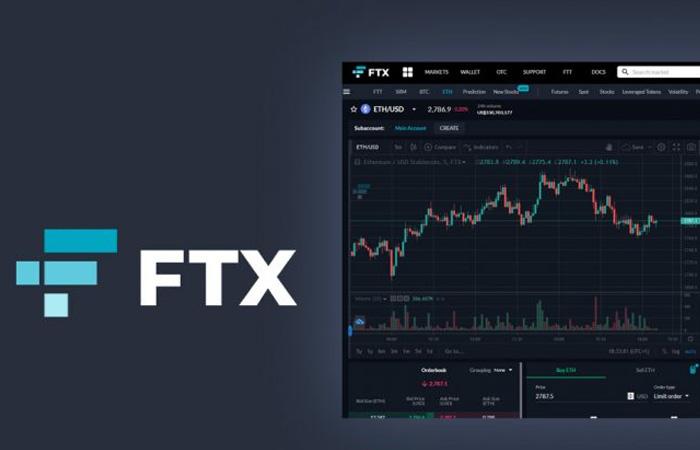
The exchange offers regular spot trading and accepts fiat and cryptocurrency transactions, including Bitcoin, Ethereum, Litecoin, and various stablecoins. FTX seeks to serve retail and institutional traders, offering various goods and services geared toward more serious traders.
The platform also offers an over-the-counter (OTC) service for those looking to make large crypto purchases and a mobile app for those who want to keep track of their accounts on the go.
Over 20 notable cryptocurrencies, including BTC, ETH, BNB, and LINK, are available for perpetual futures on FTX. Index Futures are also listed on the exchange, allowing customers to trade various markets in a simpler manner. Large-cap coins (ALT-PERP), mid-cap coins (MID-PERP), and small-cap coins (SCAP-PERP) are among them (SHIT-PERP). By ing the proper index, users can trade exchange tokens (EXCH-PERP), privacy tokens (PRIV-PERP), and regional baskets (DRGN-PERP).
The exchange also offers over 45 different leveraged tokens, making it very simple for users to obtain leverage. The BULL and BEAR tokens, for example, automatically monitor users' exposure and rebalance daily to maintain their goal leverage and avoid liquidations.
There are no costs on deposits or withdrawals when using FTX, and there are no costs on futures settlements. Trading over the counter (OTC) is likely free of charge because FTX has included the commission in the offer price.
The creation and redemption fees for leveraged tokens are 0.10 percent, while the daily management fees are 0.03 percent. So if you use 50x leverage, your trading fees will increase by 0.02 percent, and if you use 100x leverage, your trading costs will increase by 0.03 percent.
5. OKex
The OKex exchange platform offers both in-browser and a downloadable desktop app. OKex's exchange platform is more professional than the usual bitcoin exchange, it places a higher demand on hardware. Because trading platforms are relatively large in size, a desktop app that handles the brunt of the demand is needed to eliminate the chance of a browser crash due to memory and processing issues.
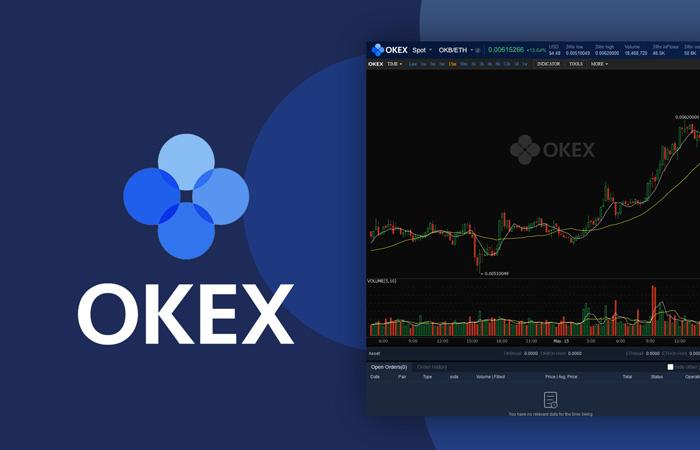
Fees are graded based on the 30-day trading volumes, but they are cheap even at the highest level. For example, a 0.15 percent maker fee and 0.2 percent taker fee are the highest trading expenses for low-volume accounts.
As one of the world's largest cryptocurrency exchanges with significant financial backing, it is reasonable to expect that OKex's cybersecurity architecture meets the industry's best standards. GSLB, distributed server clusters, and cold storage multi-signature wallets are among the security features listed by the exchange.
Those are 5 examples of crypto derivatives exchange that may suit your needs. No matter what your choice is, remember that derivatives are volatile with a greater risk of loss. You should be familiar with the strategies and risks before investing in crypto derivatives.

 Dedicated FREE FOREX VPS
Dedicated FREE FOREX VPS Free FOREX Virtual Private Server
Free FOREX Virtual Private Server MT4 Demo Contest, Get $500
MT4 Demo Contest, Get $500 Sign Up for an Account, Claim 60% Deposit Bonus
Sign Up for an Account, Claim 60% Deposit Bonus Free MT4/MT5 VPS 2024
Free MT4/MT5 VPS 2024 Send E-mail and Get Free Merchandise
Send E-mail and Get Free Merchandise $1K Refer a Friend Bonus for Pepperstone Pro clients
$1K Refer a Friend Bonus for Pepperstone Pro clients Maximize Your Earnings with 100% Deposit bonus
Maximize Your Earnings with 100% Deposit bonus Trade to Win, $5,000 Monthly Demo Contest
Trade to Win, $5,000 Monthly Demo Contest Claim 30% + 15% Deposit Bonus from LiteFinance
Claim 30% + 15% Deposit Bonus from LiteFinance
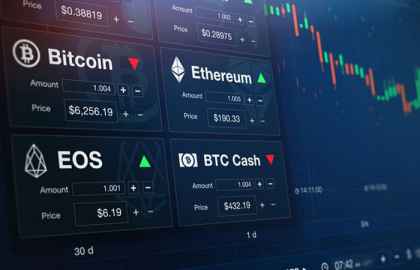
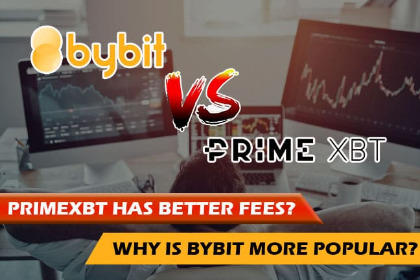
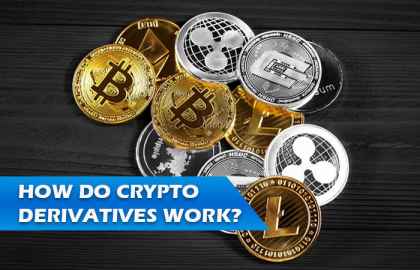
 Bitcoin
Bitcoin Ethereum
Ethereum Tether
Tether BNB
BNB Solana
Solana USDC
USDC XRP
XRP Dogecoin
Dogecoin Toncoin
Toncoin Cardano
Cardano